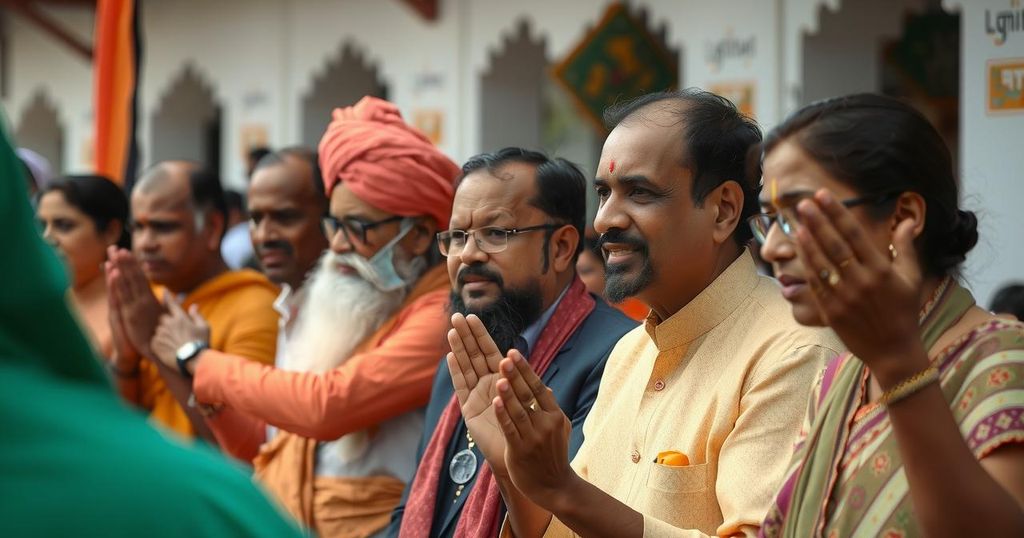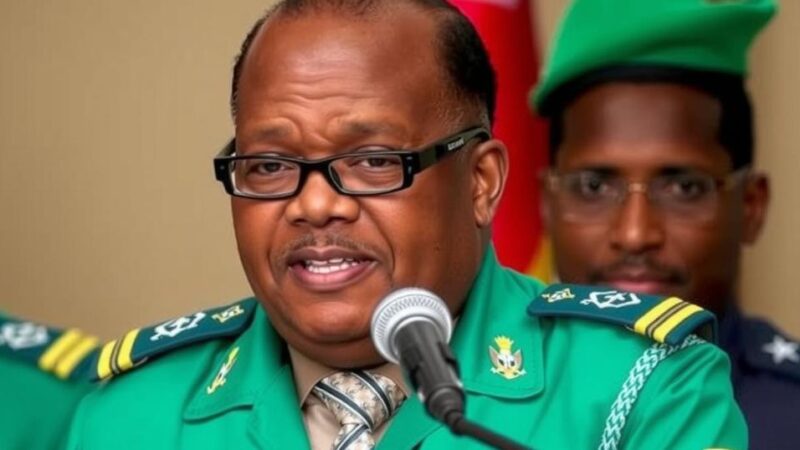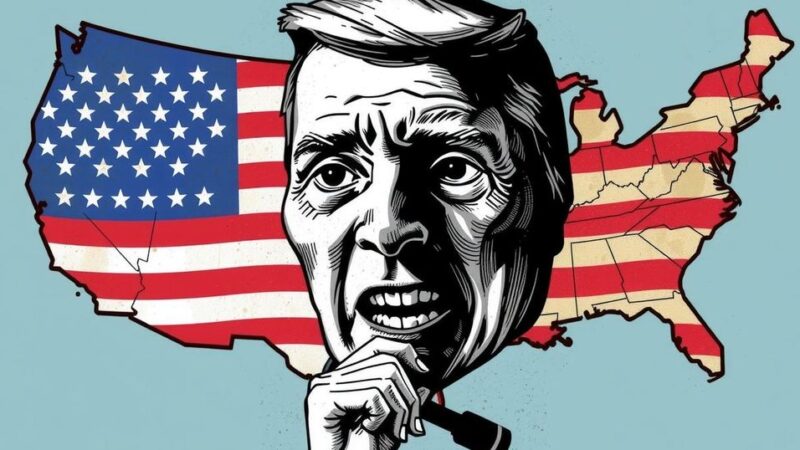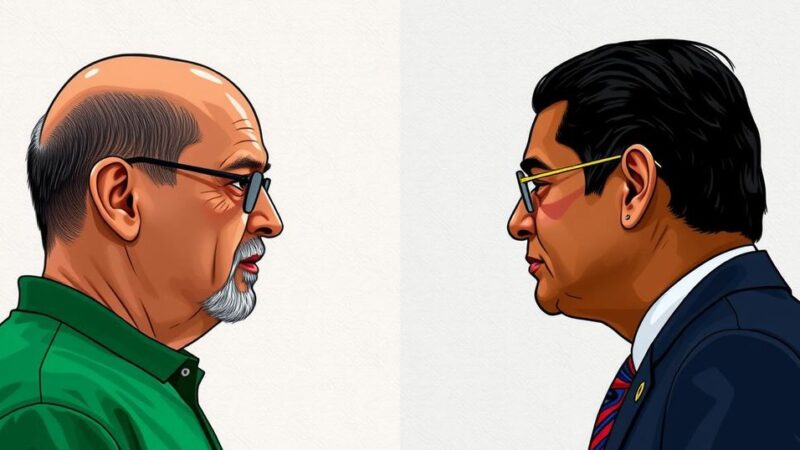A group of expatriate Bangladeshi Hindus has urged India to seek UN sanctions against Bangladesh to protect Hindus and other minorities from persecution. They are advocating for global intervention and a population exchange plan initiated in 1947 while emphasizing the need for safe zones in Hindu-majority areas. The group’s actions respond to recent government changes and ongoing violence against minorities in Bangladesh.
On Monday, a collection of expatriate Bengali Hindus, organized under the Global Bengali Hindu Coalition, urged the Indian government to request United Nations sanctions against Bangladesh. This group, consisting of individuals originally from Bangladesh and now residing in Europe and North America, is advocating for protective measures for Hindus and other religious minorities in Bangladesh. They are in New Delhi for discussions with Indian political leaders regarding the perceived persecution of Hindus following the removal of the Sheikh Hasina administration in August.
During a press conference at the Foreign Correspondents Club, the group presented a five-point action plan aimed at safeguarding Hindus and other marginalized groups within Bangladesh, which they accuse of being under an “illegal and hostile government.” Their demands include global intervention, implementing peacekeeping forces to protect minorities, and targeted UN sanctions on the current Bangladeshi regime due to ongoing human rights violations.
Moreover, the expatriate group advocates for the completion of an “unfinished population exchange” to facilitate the resettlement of displaced minorities, a concept rooted in the historical context of the 1947 Partition. They have emphasized the importance of establishing protected zones in Hindu-majority areas of Bangladesh to ensure the safety of these communities. They are also calling upon the Indian government to reassess the peacekeeping contributions made by Bangladesh, given its reputation as a significant contributor to UN missions globally.
Sitangshu Guha, a leader from the group based in the United States, highlighted India’s historical support during Bangladesh’s liberation war in 1971. He stated, “India is our best friend; it can help rescue the 20 million Hindus of Bangladesh.” The leaders of the group expressed their concern about the ongoing violence against Hindus, asserting that past and current Bangladeshi governments have failed to protect these vulnerable communities.
The relationship between India and Bangladesh has deteriorated significantly since Sheikh Hasina was ousted from power. The interim government has dismissed claims of widespread targeting against Hindus as exaggerated, while the expatriate group maintains that assaults against this community continue unabated. The group’s appeal for intervention and protection reflects deep concerns regarding the future of Hindus in Bangladesh, whose numbers have dramatically declined over the decades.
Additionally, the group has provided compelling statistics, noting that the Hindu population in Bangladesh dropped from 22% in 1951 to just under 8% in 2022, as they continue to face systemic injustices. A report by the Bangladesh United Sanatani Awakening Alliance highlights numerous incidents of violence directed at Hindu religious sites and individuals, underscoring the urgent need for international attention and action.
The call for UN sanctions against Bangladesh stems from longstanding issues regarding the treatment of religious minorities, particularly Hindus, in the country. Following the removal of Sheikh Hasina’s government amid protests, there have been reports of increased violence and discrimination against Hindus. The expatriate group aims to raise awareness and press for protective measures to ensure the rights and safety of these communities under the current interim administration, proposing international intervention and closer oversight from organizations like the UN.
The appeal by the expatriate Bangladeshi Hindu group highlights critical issues surrounding the treatment of religious minorities in Bangladesh, particularly in light of recent governmental changes. Their demands for UN sanctions, protective measures for minorities, and reassessment of Bangladesh’s role in peacekeeping underscore their urgent call for action. This situation reflects broader regional tensions and concerns regarding human rights that merit closer international scrutiny and response.
Original Source: www.hindustantimes.com







